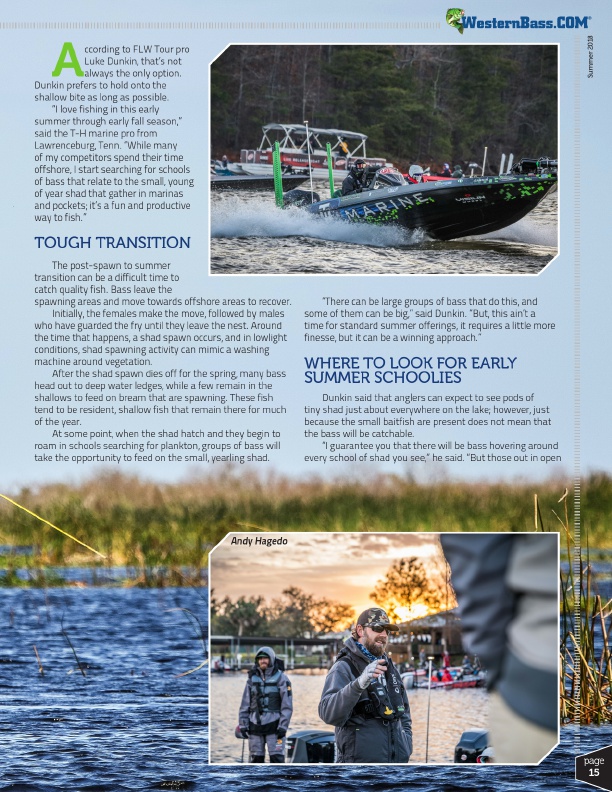
Summer 2018
A
ccording to FLW Tour pro
Luke Dunkin, that’s not
always the only option. Dunkin prefers to hold onto the
shallow bite as long as possible.
“I love fishing in this early
summer through early fall season,”
said the T-H marine pro from
Lawrenceburg, Tenn. “While many
of my competitors spend their time
offshore, I start searching for schools
of bass that relate to the small, young
of year shad that gather in marinas
and pockets; it’s a fun and productive
way to fish.”
TOUGH TRANSITION
The post-spawn to summer transition can be a difficult time to catch quality fish. Bass leave the spawning areas and move towards offshore areas to recover.
Initially, the females make the move, followed by males who have guarded the fry until they leave the nest. Around the time that happens, a shad spawn occurs, and in lowlight conditions, shad spawning activity can mimic a washing machine around vegetation.
After the shad spawn dies off for the spring, many bass head out to deep water ledges, while a few remain in the shallows to feed on bream that are spawning. These fish tend to be resident, shallow fish that remain there for much of the year.
At some point, when the shad hatch and they begin to roam in schools searching for plankton, groups of bass will take the opportunity to feed on the small, yearling shad.
“There can be large groups of bass that do this, and some of them can be big,” said Dunkin. “But, this ain’t a time for standard summer offerings, it requires a little more finesse, but it can be a winning approach.”
WHERE TO LOOK FOR EARLY SUMMER SCHOOLIES
Dunkin said that anglers can expect to see pods of tiny shad just about everywhere on the lake; however, just because the small baitfish are present does not mean that the bass will be catchable.
“I guarantee you that there will be bass hovering around every school of shad you see,” he said. “But those out in open
®
Andy Hagedo
page
15